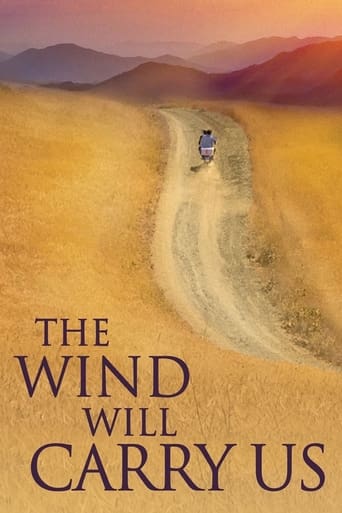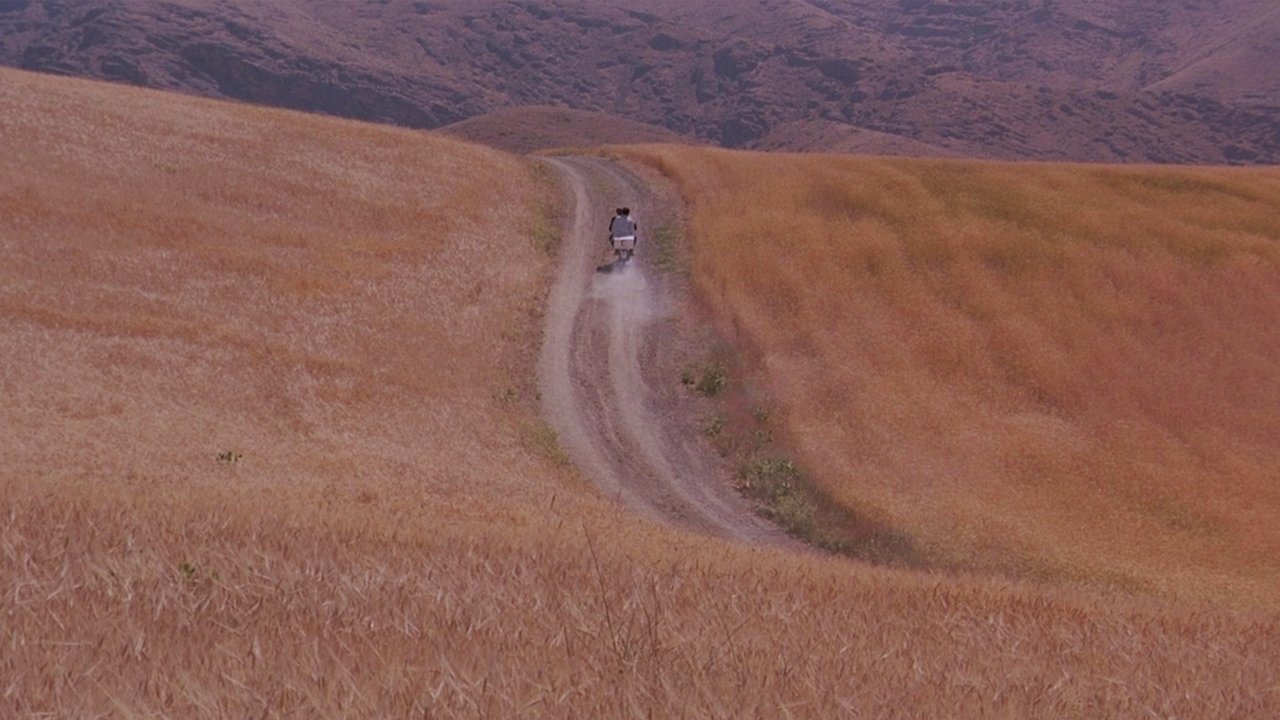Lee Eisenberg
An occasional motif in cinema is the arrival of a person from a big city in a small town. It's gotten played for laughs (My Cousin Vinny) and gotten used for terror (The Birds). But Abbas Kiarostami's "Bād mā rā khāhad bord" ("The Wind Will Carry Us" in English) is probably the first instance where it's been philosophical. The movie focuses on some journalists who go to a Kurdish village to document the rituals anticipating the death of an elderly woman, only to see the woman survive. One of the journalists proceeds to meander through the village, his cell phone remaining the only link to the outside world. It's as though the stay in this village is the first time that he's had a chance to simply experience life.So far I've liked every Kiarostami movie that I've seen, and that includes this one. It's basically a focus on our understanding of life (the urban concept of it vs. the rural concept of it). Abbas Kiarostami, like Akira Kurosawa and Martin Scorsese, is someone whose work revolutionized cinema. It's too bad that he died last year (one of the many notable people who left us during the atrocity that was 2016).
G K
The film was instantly hailed as a classic and completely firmed director Abbas Kiarostami's position as the single most acclaimed director amongst the art-house circles of the 1990s. Mysterious visitors arrive at a remote Kurdistani village and reveal enormous interest in an old dying woman.Intriguing and ambiguous, this film mixes witty and absurdist comedy with an unexpected thriller element, while contrasting traditional rural life with urban modernity. The answers to the questions it poses reveal themselves gradually, and seem to lie in the very landscape. The Wind Will Carry Us is a film of poetic depth that alludes to questions of life and mortality almost by stealth.
theskulI42
Speaking of divisive directors, I present to you a film from acclaimed Iranian director Abbas Kiarostami. The charge is that his films are painfully slow and empty, a charge I myself have leveled at directors, most notable Tsai Ming-Liang, a director acclaimed by much the same crowd that acclaimed Kiarostami.But where Ming-Liang's films are awkward, rigid and force us to stare at nothing (normally just other people staring at other people staring at walls), Kiarostami's films I think for me pattern themselves after the rhythms of life. There's no expectation for them to go anywhere, so there's no disappointment when they don't, but they feel natural, they feel like, if you were there, this is pretty much how it would go down. This is a chance to sit in on a culture and terrain completely different than my own, and Kiarostami captures it beautifully. Kiarostami has a huge affinity for driving sequences, and it serves to perfectly encapsulate the feeling of travel one gets from a Kiarostami film, both of the body and mind.As such, there's also a sort of wonderful mystical quality that pervades each of his films. This was most pronounced in A Taste of Cherry, but I've felt it in even his most benign, straightforward films, such as Where is the Friend's Home?, which is a film wholly and completely about a kid running around trying to return a notebook to a schoolmate. The mysticality of The Wind Will Carry Us was for me derived in the restrictions of our visit. Our protagonist is a reporter in town to report upon the death of an ailing village elder; the problem is that she just won't die (occasionally threatening to be getting *better*!), and just as if we were actually there as a guest, accompanying this man, we see very few people in full light. Many of the people he has to go to a certain place to talk to, we never see at all (his associates shack up in an apartment and never emerge, the aforementioned elder at the center of the film is never shown), and that both grounds and raises the situation of the material. Since we're not being inundated with characters, we're forced to kill time with the Engineer, and life just happens in-between.Kiarostami is not a director of manipulation, he is not interested in telling you how to feel or perhaps even providing anything earth-shattering to make you feel. As such, he almost never uses music to instruct the emotion of the scene, but this is ultimately an advantage, as instead, he fills your ears with the sounds of living. Sometime, just go outside and sit on the grass. See what you hear. If Kiarostami made a film there, that is what you would hear on the soundtrack. And then he's probably make you drive him around, presumably in a beat-up Range Rover.Kiarostami's films reproduce, synthesize and present life, both as it is on the ground and as it may be in the sky. Like a real tourist, you're not going to understand the meaning behind every action, but you feel it farther down, and his films function as a chance to take a vacation to a place few travel, get to involve yourself with the locals, feel a little raised metaphysically, and even get your own personal subtitle track. :-D I'll take that trip any time, thanks.{Grade: 8.5/10 (B+) / #23 (of 55) of 1999}
coneybear
hmmmmm... not too sure about this movie. I can't decide if I loved it or hated it!I watched the entire thing enthusiastically, which means it must not have been boring, although nothing much was happening! I guess I was expecting everything to fall into place at the end, but the ending was one of the most unexpected and uneventful of any movie I have ever seen. So immediately after the movie finished I felt quite let down, ripped off, and angry. I would have given the film a 0/10 at that point.But on reflection it was quite an artistic movie and it was a realistic glimpse into another world, that would be very difficult to experience in any other way. There was a sereneness and humanity about the film which I perhaps lost sight of while I was watching the movie, due to my expectations of a Hollywood style plot. So in this way the movie could have got a 10/10 from me.In the end I think I'll settle on giving it 5/10 and call it an experience rather than a movie!


 AD
AD

